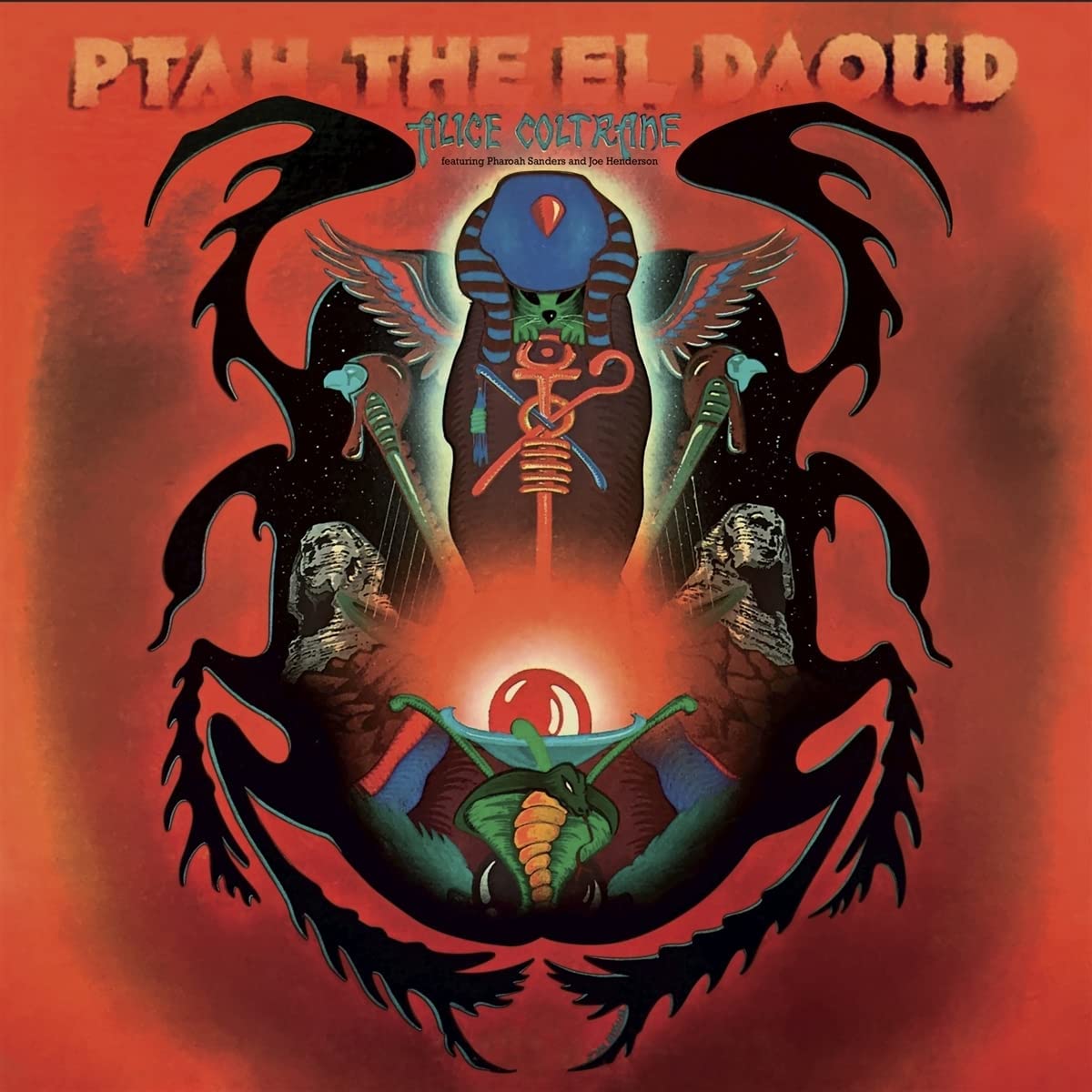1
/
of
1
Alice Coltrane - Ptah, The El Daoud LP
Alice Coltrane - Ptah, The El Daoud LP
Regular price
$44.95 AUD
Regular price
Sale price
$44.95 AUD
Unit price
/
per
Taxes included.
Shipping calculated at checkout.
Ptah, the El Daoud, recorded and released in 1970, is the third solo album by Alice Coltrane. The album was recorded in the basement of her house in Dix Hills on Long Island, New York. This was Coltrane's first album with horns (aside from one track on A Monastic Trio - 1968 - on which Pharoah Sanders played bass clarinet). Sanders is recorded on the right channel and Joe Henderson on the left channel throughout. Coltrane noted: 'Joe Henderson is more on the intellectual side, while Pharoah is more abstract, more transcendental. ' All the compositions were written by Alice Coltrane. The title track is named for an Egyptian god, Ptah, 'the El Daoud' meaning 'the beloved'. 'Turiya', according to the liner notes, 'was defined by Coltrane as 'a state of consciousness - the high state of Nirvana, the goal of human life', while 'Ramakrishna' was a 19th-century Bengali religious figure and also denotes a movement founded by his disciples. On 'Blue Nile', Coltrane switches from piano to harp, and Sanders and Henderson from tenor saxophones to alto flutes.
View full details


